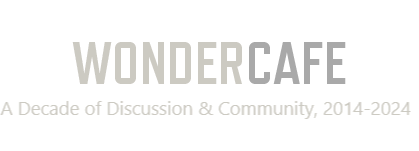Carolla
wondering & wandering
- Pronouns
- She/Her/Her
Part of me wonders if, at the Last Supper, Jesus even thought that thousands of years into the future that Christianity would be an organized, institutionalized religion, and his words & actions of that would become ritualized by the organizers & gatekeepers of said religious institutions. No way to really know that I think.
